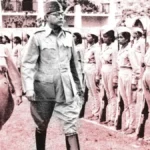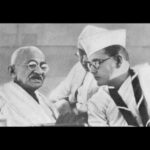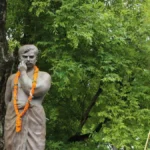Every year on January 23rd, India celebrates Parakram Diwas, a day dedicated to honoring the indomitable courage and unparalleled contribution of Netaji Subhas Chandra Bose to India’s freedom struggle. Declared by the Government of India in 2021, this day not only commemorates the birth anniversary of one of the nation’s greatest heroes but also serves as a reminder of his resilience, patriotism, and vision for an independent India. In 2025, as we celebrate Parakram Diwas, let us delve into the life, legacy, and valor of this iconic leader who continues to inspire generations.
The Life and Legacy of Netaji Subhas Chandra Bose
Born on January 23, 1897, in Cuttack, Odisha, Subhas Chandra Bose was a prodigy whose brilliance shone from a young age. After completing his education in India, Bose moved to England to appear for the Indian Civil Services (ICS) examination, where he secured a high rank. However, his heart yearned for India’s independence, and he chose to resign from the prestigious position, marking the beginning of his journey as a revolutionary leader.
Netaji’s ideology was rooted in action, courage, and a burning desire for freedom. While many leaders of his time advocated for non-violent methods, Bose believed that India’s liberation required more assertive measures. His famous slogan, “Give me blood, and I will give you freedom,” encapsulates his passionate call to arms.
The Formation of the Indian National Army (INA)

Netaji’s unwavering determination led him to form the Indian National Army (INA), also known as the Azad Hind Fauj, in 1943. The INA was a revolutionary force that sought to overthrow British colonial rule through armed struggle. Bose’s efforts to unite Indians across diverse backgrounds under the banner of the INA remain one of his most remarkable achievements.
The INA’s motto, “Ittehad, Itmad, Qurbani” (Unity, Faith, Sacrifice), resonated deeply with millions of Indians. Although the INA faced military setbacks, its impact on the psyche of the Indian people was profound, igniting a new wave of nationalism that ultimately contributed to India’s independence in 1947.
Why Parakram Diwas is Significant
The term “Parakram” means courage, valor, and determination – qualities that defined Netaji’s life and actions. Parakram Diwas is not merely a day to remember a historical figure but an occasion to draw inspiration from his principles. It reminds us of the importance of unity, self-reliance, and unwavering dedication to the nation.
In a world that often seems divided, Netaji’s vision of a united and empowered India serves as a guiding light. By celebrating Parakram Diwas, we honor not only his contributions but also the countless sacrifices of those who fought for our freedom.
How Parakram Diwas is Celebrated
Across the nation, Parakram Diwas is marked with a variety of events and activities aimed at commemorating Netaji’s legacy. Some of the key highlights include:
1. Tributes and Wreath-Laying Ceremonies
Government officials, dignitaries, and citizens gather to pay homage to Netaji at statues, memorials, and museums dedicated to him.
2. Educational Programs and Seminars
Schools, colleges, and universities organize events to educate the youth about Netaji’s life, struggles, and achievements.
3. Cultural Events and Performances
Patriotic songs, plays, and dance performances are held to celebrate the spirit of Parakram Diwas.
4. INA Exhibitions
Museums and organizations showcase rare photographs, letters, and artifacts related to the Indian National Army and Netaji’s life.
5. Nationwide Awareness Campaigns
Various government and non-governmental organizations use this day to promote unity, self-reliance, and national pride among citizens.
Netaji’s Relevance in Modern India

Even after decades, Netaji Subhas Chandra Bose’s teachings and ideologies remain relevant in contemporary India. His call for self-reliance (Atmanirbhar Bharat) echoes in today’s push for a self-sufficient nation. His emphasis on unity and inclusivity is a reminder of the strength that lies in diversity.
As India continues to evolve as a global power, Netaji’s vision of a prosperous, independent, and equitable society offers invaluable lessons. His life teaches us to dream big, work tirelessly, and stand united in the face of challenges.
Quotes by Netaji That Continue to Inspire
“Freedom is not given; it is taken.”
This quote embodies his belief that independence requires relentless effort and sacrifice.
“It is blood alone that can pay the price of freedom. Give me blood and I will give you freedom!”
A powerful call to action, this slogan motivated countless Indians to join the freedom movement.
“Nationalism is inspired by the highest ideals of the human race: Satyam (truth), Shivam (God), Sundaram (beauty).”
Netaji’s vision of nationalism was inclusive and rooted in universal values.
The Final Thoughts
As we celebrate Parakram Diwas 2025, let us remember the valor and sacrifices of Netaji Subhas Chandra Bose, whose life remains a beacon of inspiration. His vision of a free, united, and self-reliant India continues to guide us in building a better future. On this day, let us pledge to uphold the values he stood for and work together to make India stronger, just as he dreamed.
Related posts:
 Netaji Subhas Chandra Bose: The Journey of a Committed Revolutionary Nationalist
Netaji Subhas Chandra Bose: The Journey of a Committed Revolutionary Nationalist
 What Was The Role of Subhas Chandra Bose In Indian Independence Movement?
What Was The Role of Subhas Chandra Bose In Indian Independence Movement?
 Gyanyog: The Spiritual Legacy of Swami Vivekananda
Gyanyog: The Spiritual Legacy of Swami Vivekananda
 The Role of Chandra Shekhar Azad in Indian Independence
The Role of Chandra Shekhar Azad in Indian Independence
 Hindu New Year 2025: Significance, History, Traditions, and Celebrations
Hindu New Year 2025: Significance, History, Traditions, and Celebrations
 Your Life Can Change in Just One Minute – The Ultimate Guide to Success & Motivation!
Your Life Can Change in Just One Minute – The Ultimate Guide to Success & Motivation!
